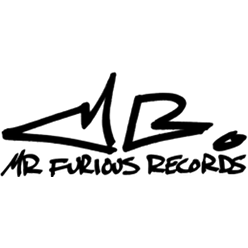JT sent this message earlier this week. As I thought about a reply, I realized that I wanted to write about these things already but wasn’t sure there was any interest beyond my own self. But when a question is voiced, often other people have the same question, and haven’t vocalized it yet. So JT’s letter raises some things, and my long comment is an initial reply.
“h&s” = howie&scott
From: JT Hills
To: mfr@mrfuriousrecords.com
Subject: A eureka moment?
This is a multi-part message in MIME format.
——————————————-
H-man-
I was perusing my music library a few minutes ago and stumbled up some
Dave Matthews Band. Now, I know it seems unlikely one can just forget
music one has in a music library on a computer, where iTunes has it all
nicely organized for one, but when one has nearly 4500 songs in said
music library, one can forget about certain tunes listened to less often
than other tunes.
Anyway, I discovered I had a live version of “All Along the Watchtower”
by Dave and his guys, which was an interesting coincidence because I was
just thinking earlier today about how I’d like to hear Jimi Hendrix’s
version of that song. But it also got me to thinking about some
old-school h&s days. I recall when I first met you (and thus, h&s), you
hadn’t yet embarked upon the adventure of original music, and instead
relied on a set of regular covers and then a set of Dave covers for your
shows. It was a rockin’ good time, but unable to equal the days ahead
of new songs and electric guitars. I like listening to h&s not only
because it’s good music, but also because it reminds me of those times
when the songs were live and raw.
I remember when I first heard “Mable” escape your stage, and I was
jarringly introduced to Goldfinger. I remember watching you (with Becca
and Mel along) struggle for words of the cover songs you played the
night you premiered original h&s tunes in Lincoln (nervous, perhaps?).
I remember a long drive to Omaha as the official h&s roadie of the
evening (because I couldn’t find anyone else to take me), and longer
drives to Hastings for dual shows with Rob and his cronies. I remember
seeing another night show in a Lincoln coffeehouse when, two songs
before the end of the set, multiple strings broke on your acoustic
guitar, so you brought out the electric to finish with perhaps the most
powerful h&s moment I ever saw. I remember a few CD release parties,
and I remember hearing “Blues or Astroblue?” live for the first time
with the electric and the drum kit and the looping saxophone over
looping saxophone, and I (with David Morris) couldn’t contain the pure
excitement passed down and handed out throughout the crowd, feasted upon
by those of us groovin’ in the back of the room.
Of course, there are other memories too, but they don’t stick with me as
well as those do. These were the memories that all had a common factor:
the h&s live show. Then this idea came across my eyes almost as if it
were projected from another place: what if there was h&s live tunes to
take home with us? I realize that there are already many (a la Blades
of Vengeance), but that’s not all of h&s. I know you guys first as a
cover band, where everyone gets involved, then as a folk rock band with
songs to think to, and then as a rock band to groove to. Each live
instance of h&s has its own flavor, and I think you captured the
folk-rock h&s well with Blades of Vengeance. But where is the live rock
h&s? Where is the live cover h&s?
The live h&s shows weren’t just musical performances, they were
something to experience, and I miss that experience. I long to hear
your versions of “Mable,” “All Along the Watchtower,” “Ants Marching,”
“Creep,” and the always fun “Birdhouse in Your Soul.” I yearn to lose
myself in the raw flavor of rock “Blues or Astroblue?,” “After the
Countdown,” “Houston,” “Thanks For Visiting Me on The Radio” or “Stop
Walking.”
Is it possible for this to happen? Is there any plausibility to it? Or
am I living in a dream world?
Just a few friendly thoughts down Colorado way…
-JT
P.S. In a somewhat related (but not really) note, what’s the deal with
the h&s web site? Re-launching?
